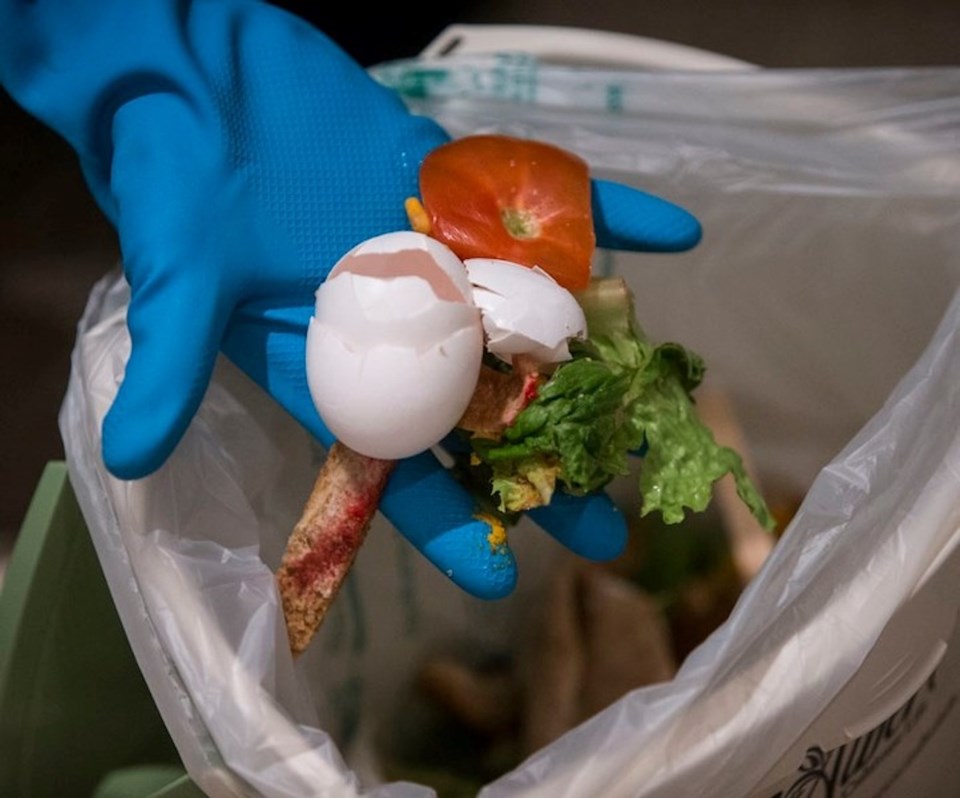St. Albertans are steadily improving when it comes to properly sorting their organic waste, as about nine per cent of all organic waste picked up in 2023 ended up in a land fill, the citizen-based Environmental Advisory Committee (EAC) heard last week,
The nine per cent figure stands in stark contrast to just a couple of years ago, when the city found 41 per cent of all organic waste collected between June of 2021 and April of 2022 went to land fills because of contamination and improper sorting.
READ MORE: City falls flat on organics recycling
John Potter, the city's manager of transportation operations and waste management, told the EAC on May 23 that since so little organic waste was rejected last year, St. Albert managed to send 7,650 tonnes of organic waste to the Roseridge compost facility in Sturgeon County. In 2022, St. Albert sent just 5,906 tonnes of organic waste to Roseridge.
“That's promising,” Potter said. “The land-filled organics for last year at curbside was 756 [tonnes, and] that's really happening in the winter months when people are pretty much intentionally contaminating their organics bin.”
The committee heard that during the heart of winter, the city has noticed some residents will fill their organics bin with garbage when their garbage bins are full, since it's common for households to have less organic waste in the winter months.
“In December, January, February, and March, we're talking about 200 tonnes of organics that are picked up during those months [city-wide], so it's not a large volume but unfortunately a lot of that volume is going to landfill because of contamination.”
Besides the intentional contamination trend, Potter told the committee one possible explanation for such a sharp improvement overall when it comes to proper organic waste sorting was the door-to-door education efforts undertaken by city staff over the past few years, including the nearly 1,800 households visited in 2023.
While there's no guarantee those education efforts were entirely responsible for the positive results, Potter did tell the committee just three per cent of all green organic waste bins were rejected at pickup last year, compared to 13 per cent in 2022 and 19 per cent in 2021.
“Obviously that's a significant change,” Potter said. “[Through] our education campaigns, and getting out to Grade 4 students and teaching them about diversion and hopefully they pass it on to their families and then it evolves and continues, maybe one day we'll have that at close to 0 per cent.”
Some of the more common examples of contaminating material improperly put into residents' green bins in 2023 included pet waste (11 per cent); garbage (11 per cent); food packaging (20 per cent); and to-go cups (14 per cent), the committee heard.
When it comes to recycling, proper sorting continues to be an “ongoing issue,” Potter said, as plastic wrap, plastic bags, and plastic clamshells — the containers that many berries and other types of fruit are packaged in — are routinely but mistakenly placed in blue recycling bags.
During the May 23 meeting, committee member Kevin Aschim asked if the city has thought of taking away green bins from repeat offenders in order to reduce overall organic waste contamination, and Potter said that would go against city policy, although he did think it would help.
RELATED: St. Albert apartment, condo recycling and organics program delayed
“We say within our policy three stream [waste collection is a guaranteed service level],” Potter said. “We'd like them to abide by that.”
“Taking it away and giving them another garbage cart goes against diversion, but it's better than them contaminating the organics.”
City spokesperson Pamela Osborne said in an email detailed waste and diversion statistics for last year will be published next month as part of the city's Environment Report Card, an annual report that details tracks the city’s progress when it comes to meeting goals set out in the city’s Environmental Master Plan.
RELATED: Eco report card shows progress
These reports, dating back to 2003, can be accessed through the city's website.




